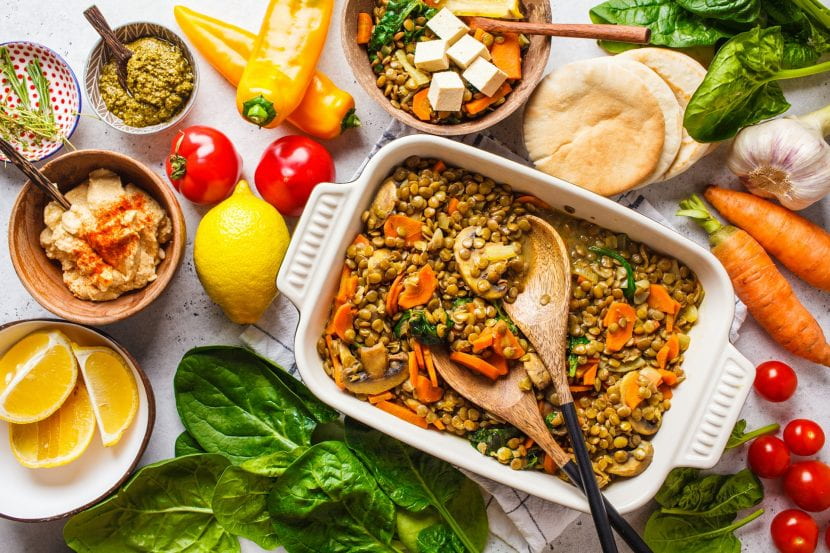In recent years, vegetarian and vegan diets have gained popularity. People choose vegetarian diets for many reasons, including health benefits, concerns for the environment, as well as other personal, ethical, and religious reasons. With careful planning, well-balanced vegetarian diets can meet the nutritional needs of people of all ages. In this post, we are going to introduce the basics of vegetarian diets.
Types of Vegetarian Diets
Vegetarian diets exclude meat, poultry, and fish, and rely on a variety of plant-based foods. There are different types of vegetarian diets. Below are some common types:
-
- Vegan diet includes plant foods, excludes all meat and animal products.
- Lacto-vegetarian diet includes plant foods and dairy products.
- Ovo-vegetarian diet includes plant foods and eggs.
- Lacto-ovo vegetarian diet includes plant foods, dairy products, and eggs.
- Pescatarian diet includes plant foods and fish.
Health Benefits
The potential health benefits is one of the many reasons people choose to follow a vegetarian diet. It is important to note that vegetarian diets are not automatically healthier than a regular diet. Rather, it is the healthy eating pattern such as the increased consumption of vegetables, fruits, and lean proteins that is essential for obtaining the health benefits. Below are some potential health benefits associated with vegetarian diets:
- Reduced risk of heart disease
- Lower blood pressure
- Reduced level of obesity
- Lower blood sugar level
Common Myth: Vegetarian food is always healthy
Foods with “vegetarian” or “vegan” labels are not automatically healthier than other foods. A lot of processed vegetarian or vegan foods are also high in added sugar and saturated fat. As a result, the nutrition label is a better determinant on whether the food is healthy. You can refer to our post on nutrition facts label for more information.
An unbalanced vegetarian diet that is high in processed foods can be more unhealthy than a regular diet. A healthy vegetarian diet requires additional planning and should consist of fruits, vegetables, whole grains, lean proteins, and avoid processed foods.
Meatless Monday:
You don’t have to be a vegetarian to enjoy delicious plant-based meals once in a while. Meatless Monday is a campaign that encourages people to skip meat for one day of the week for the benefits of health and environment. It is a great opportunity to try something new every week and explore the diversity within vegetarian cooking.
Lentils are a type of legume that is rich in protein and other important nutrients. They are sometimes used as a meat alternative in recipes. They not only offer an earthy and nutty flavor but also provide a boost of nutrients to the dish. You can try the following recipe adapted from VegKitchen.
Lentil Stew
Serves: 8
Ingredients:
- 1 cup brown lentils, washed and dried
- 4 cups vegetable broth
- 1 medium onion, chopped
- 2 garlic cloves, chopped
- 2 celery stalks, diced
- 4 medium carrots, cut into sections
- 1 cup broccoli florets
- 2 canned tomatoes with their juice
- 1 tsp dried rosemary
- pepper, to taste

Image adapted from VegKitchen.
Directions:
- Combine all ingredients in a large pot.
- Bring to a boil over moderate heat.
- Cover, reduce heat, and simmer for 30 minutes, allowing the lentils to cook to perfection.
- Serve with brown rice.
If you would like to learn more about Meatless Monday, refer to their website at: https://www.mondaycampaigns.org/meatless-monday
On the scale of 0 – 5, how likely are you to try the vegetarian recipe we shared? You can also let us know by commenting below!


Its Delicious!